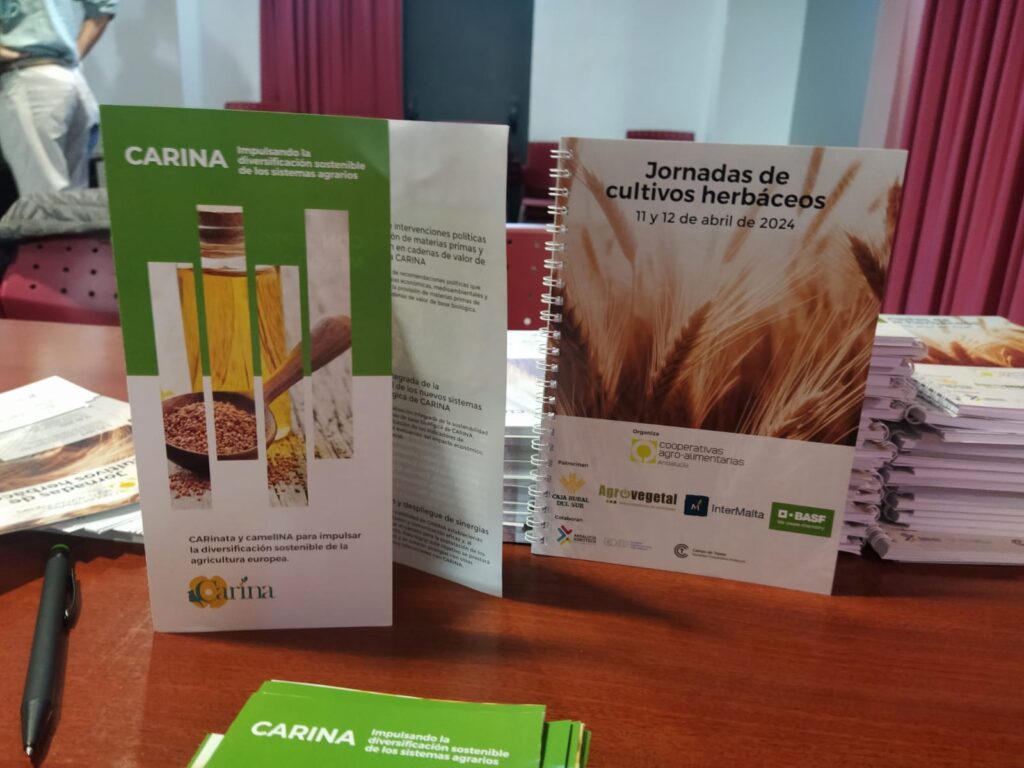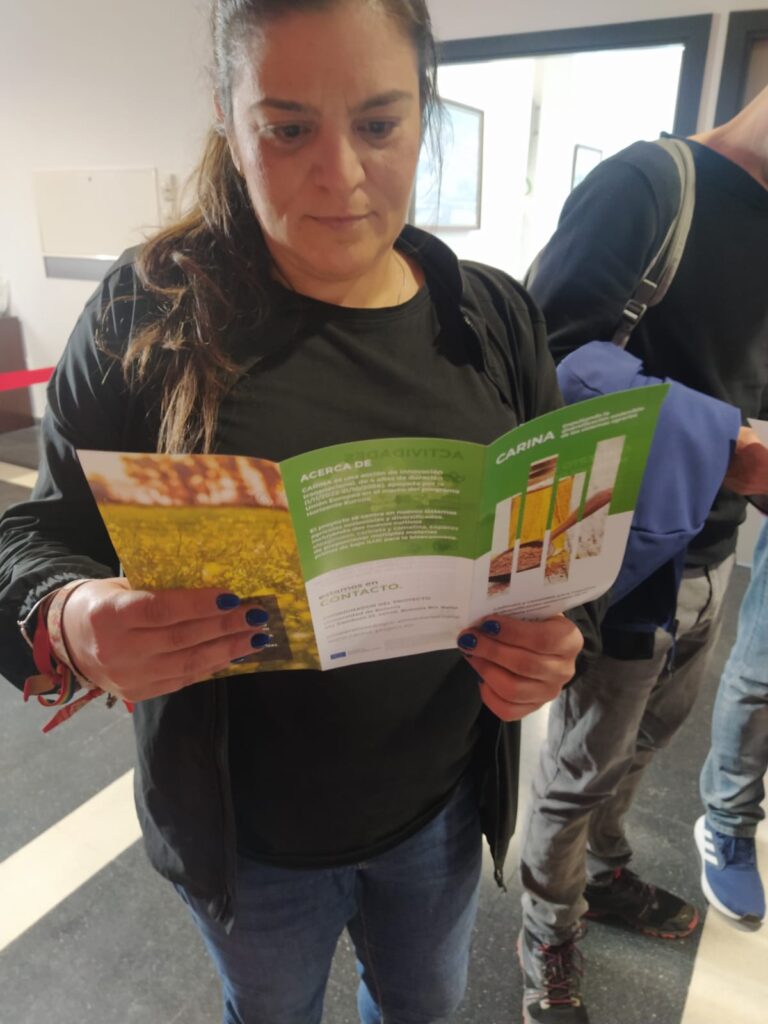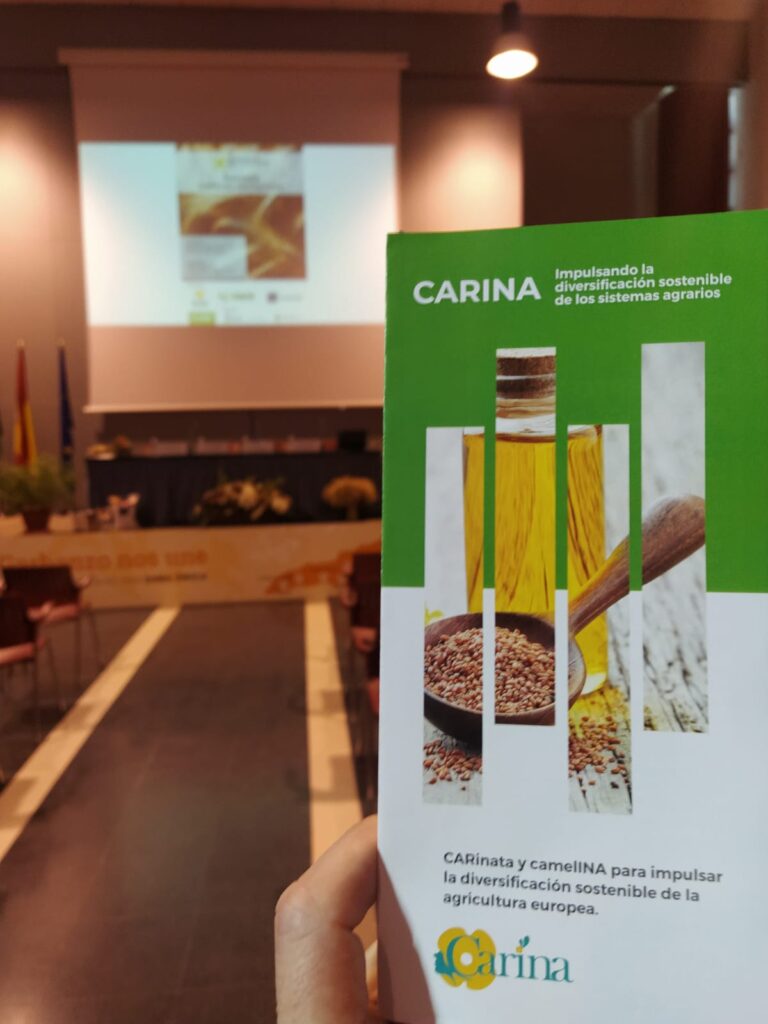Cooperativas Agro-Alimentarias de Andalucía recently hosted a dynamic technical conference on arable crops, providing an opportunity for the Carina project to engage with stakeholders and disseminate valuable insights. Held on April 11th in Huelva and April 12th in Seville, this two-day event offered a comprehensive platform for knowledge exchange and collaboration within the agricultural community.

One of the key highlights of the conference was the active participation of farmers—the primary audience of the event. Recognizing the importance of showcasing the relevance and impact of the Carina project, organizers utilized project brochures to provide attendees with valuable information. This initiative aimed to enhance awareness and understanding of Carina’s objectives, fostering a deeper appreciation for its role in driving innovation and sustainability within the agricultural sector.

Organized at the regional level in Andalusia, the conference addressed a diverse range of topics related to arable crop cultivation. From discussions on diseases affecting crops to insights into the evolving landscape of the Common Agricultural Policy (CAP), attendees gained valuable insights into the challenges and opportunities shaping the industry. Additionally, the conference provided a platform to explore the international evolution of arable crops in the market, offering attendees a broader perspective on global agricultural trends.
A highlight of the event was the field visit scheduled for April 11th, allowing attendees to witness firsthand the practical implications of ongoing trials and innovations in arable crop cultivation. This experience provided a connection between theoretical concepts discussed during the conference sessions and real-world applications in agricultural practices.

SUBSCRIBE TO A NEWSLETTER
Funded by the European Union. Views and opinions expressed are however those of the author(s) only and do not necessarily reflect those of the European Union or the European Research Executive Agency. Neither the European Union nor the granting authority can be held responsible for them.